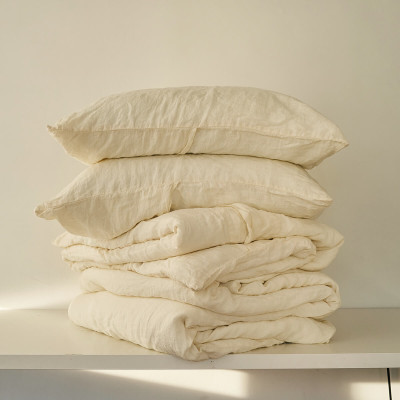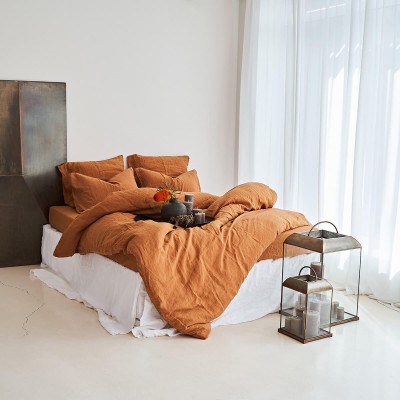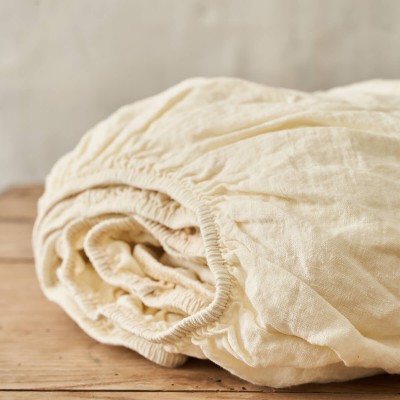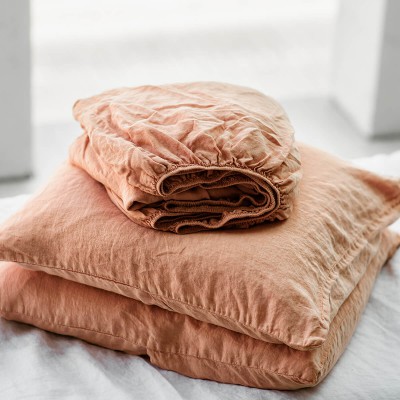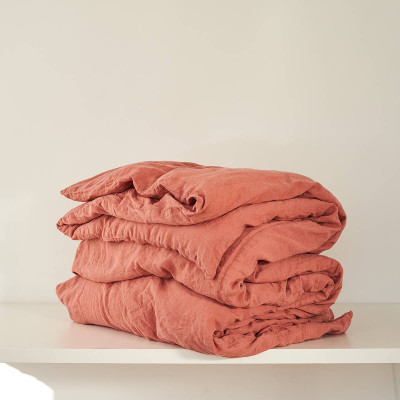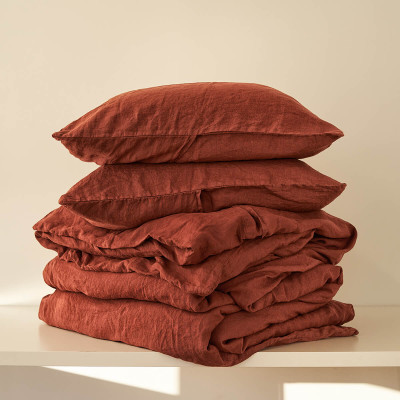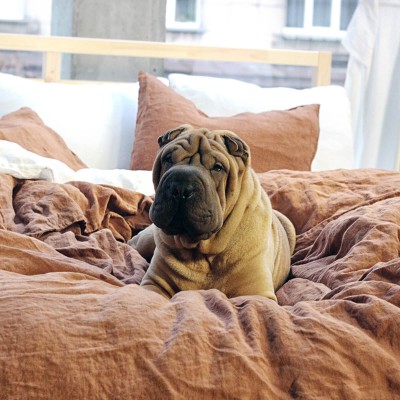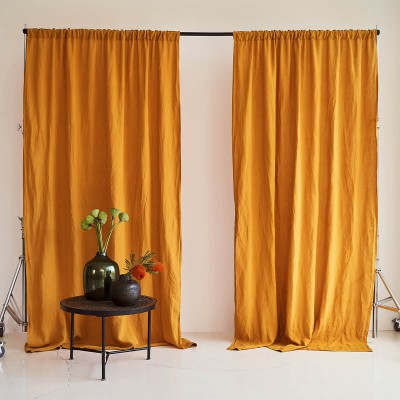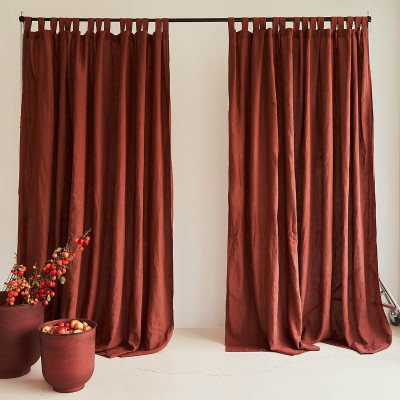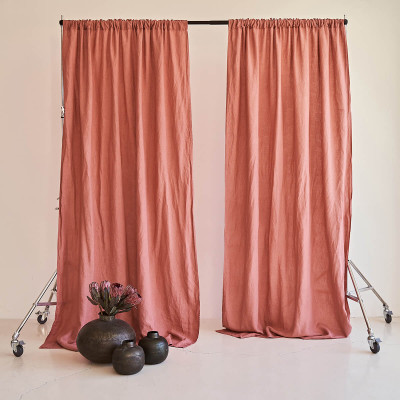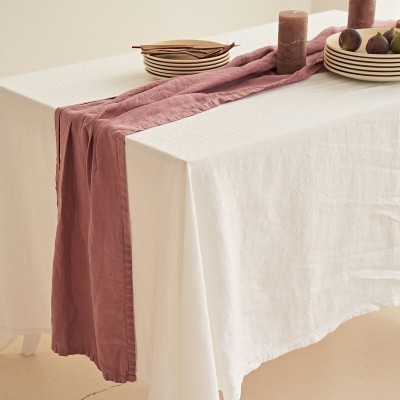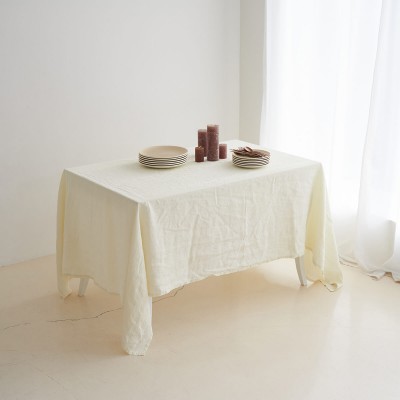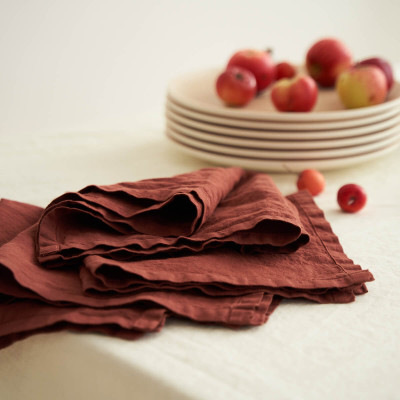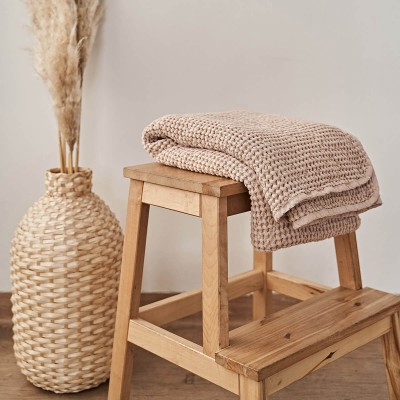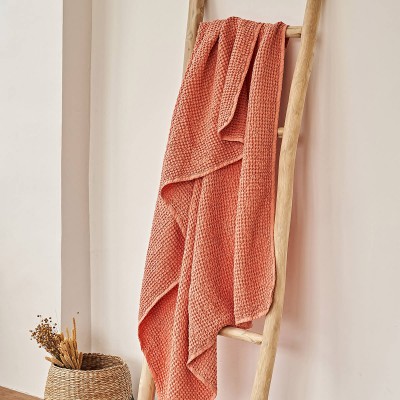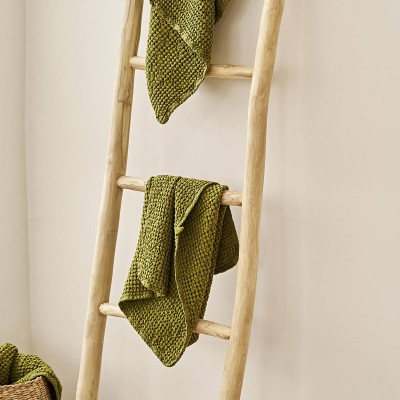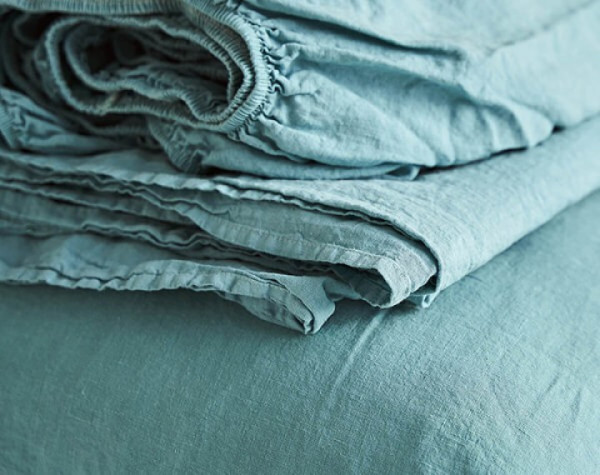
Linen VS cotton sheets – which sheets are better for you?
When it comes to bed sheets, the choice between linen vs cotton sheets can significantly impact your sleep quality and comfort. Comparing linen vs cotton bedding options will help you determine which option is better suited for your personal needs and preferences. Linen sheets are known for their breathability and durability, making them ideal for hot climates and long-term use. On the other hand, cotton sheets is considered to offer a softer touch and better affordability, often making them a popular choice for many households. In this blog post, we will outline all the pros and cons of each type of bed sheet, so you can make your choice confidently.
What is cotton bedding?
Affordable, breathable, and super smooth, cotton bedding does have its advantages making it one of the most popular fabrics for bedding. It can retain your body‘s heat making you cozy and warm through all night‘s sleep. However, cotton is also titled as the dirtiest crop out there due to its heavy use of pesticides (compared to any major crop). It also needs incredible amounts of water to be grown and unless cotton is grown originally, it also compromises on health-supporting qualities.
What is linen bedding?
Incredibly durable, soft, and antibacterial linen works wonders for bedding because of its temperature-regulating, hypoallergenic qualities as well as being one of the most sustainable fabrics out there. Nevertheless, linen sheets are an investment that may empty one‘s pockets or require budgeting months in advance. Linen is known as the strongest natural fabric which ensures longevity so linen bedding is made to last for years to come.
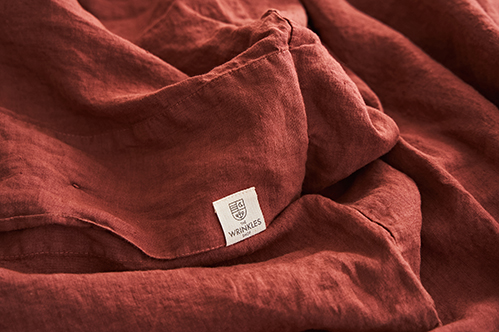
Is it better to sleep in cotton or linen?
There‘s no right or wrong answer to this question of choosing bed sheets linen or cotton because it all comes down to your personal preference. However, let‘s look at this from a few different points and discuss it further.
Sustainability. Linen requires less water compared to cotton which makes it a more sustainable choice. It is also naturally resistant to bugs so it needs fewer pesticides, and fertilizers to grow and can grow efficiently in poor soil. Cotton, on the other hand, needs incredible resources of water, pesticides, and even fertilizers to grow. This does not apply to organic cotton yet it takes more land, is less efficient, and is more labor and time intensive.
Quality. Although quality varies from fabric, and seller to other aspects, linen is a stronger fabric resulting in it lasting longer. While cotton bedding and pillows feel smooth when new, they can lose their softness and begin to disintegrate with repeated use and washing. Linen sheets, however, gets softer and smoother over time and improves as it ages. Talk about aging like a fine wine!
Longevity. Linen fibers are much stronger compared to cotton so they take up to wash and wear much better and can stay in their original, impeccable quality for many years to come. Cotton bedding piles and is easily damaged with each wash (especially, if care instructions are not taken into account) so bedding may only last a few months and may need to be repaired or replaced sooner compared to linen.
Price point. Linen is a more expensive option while cotton bedding is super affordable. That is because manufacturing linen is a laborious and timely process, from harvesting in the fields to fabric construction on the factory floor. Naturally grown and cultivated, cotton crops are always in huge demand and widespread farming of the product worldwide makes cotton an easily accessible and affordable material.
Pros and cons of linen bed sheets
Now that we discussed 4 important aspects, it is clear that although linen is great for sustainability-conscious individuals, extremely durable and high-quality fabric, it also requires a bit of investment and may not work for everyone's financial situation. However, considering that linen lasts years to come, you will not need to replace it soon and your linen bedding collection may become your tradition to be passed on to future generations. Linen is the most cooling material (compared to other fabrics) because of its looser weave. It is also incredibly moisture-resistant and can absorb up to 20 percent of its weight — a crucial choice for those who live in warmer climates.
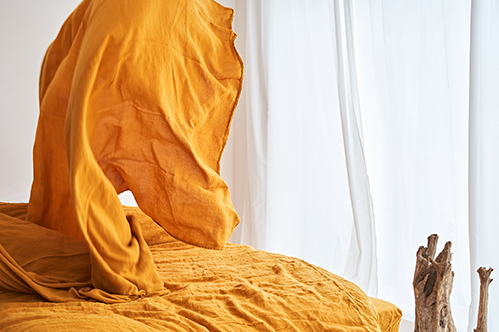
Pros and cons of cotton sheets
Being super affordable, cotton makes it easy to renew your bedding collection every month. However, it does not hold up to washing very well so you may need to renew your collection sooner than you think. Cotton is incredibly soft on the skin yet smoothness wears off as time goes by and fabric may require extra care or expensive products to stay in satisfactory quality for a little bit longer. All cotton fabrics share one essential quality: they are moisture-wicking meaning that they absorb any perspiration leaving your body dry and refreshed.
Linen vs cotton for hot weather
Both linen and cotton are great for hot weather or hot sleepers, but linen has distinct advantages. Linen's exceptional breathability and natural moisture-wicking properties make it highly effective at keeping you cool and dry. Its loosely woven fibers allow for optimal airflow, enhancing its cooling effect. Cotton, particularly in lighter weaves like percale, is soft and absorbs moisture well but doesn't dissipate heat as efficiently as linen. Overall, linen is often preferred for its superior cooling capabilities and long-lasting comfort.
What‘s easier to care for: linen vs cotton sheets?
Softened linen makes it super easy to care for it. It can be washed at 30-40 degrees on a gentle cycle and with any mild washing product you find at your home. It does not shrink or fade in the color so there‘s no need to comprehend difficult washing instructions. Cotton, on the other hand, may shrink or fade in color so it needs to be washed in cold water using a gentle cycle. Both linen and cotton can be dried naturally by hanging them, however, linen can also be tumble dried on low heat. It is best not to tumble dry cotton since warm or hot temperatures can melt cotton fibers and also damage the fabric. We adore linen wrinkles yet if you prefer to iron it, do it while the fabric is still damp. Cotton does not look nearly as good as linen when it has wrinkles so it requires ironing for a tidy look.
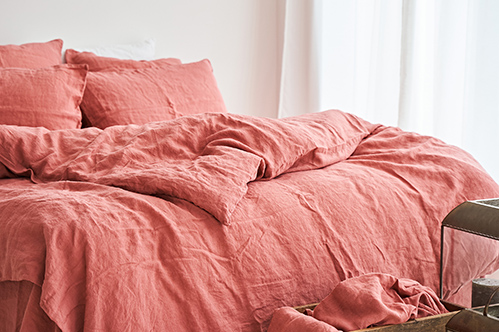
Styling your bed with linen sheets vs cotton sheets
It may take a bit of time for you to make your bed with cotton sheets. They need to be ironed and crease-free to have a luxurious hotel look yet linen does not need any of that. Wonderful wrinkly linen bedding provides a cozy, lived-in look and blends easily into any room. The unique texture of linen looks luxurious, and minimalistic and has this boho vibe to it which is extremely popular in contemporary interiors. Of course, cotton may also look magnificent and feel smooth yet it requires a lot more effort to be put into it. Cotton sheets have a more traditional, preppy, and elegant vibe. This type of bedding is more suited for classic décor and would perfectly complement a more modern bedroom. Both cotton and linen sheets pair well with other fabrics such as wool, and knitted blankets to create a cohesive, stylish room and bring more texture into the interior.
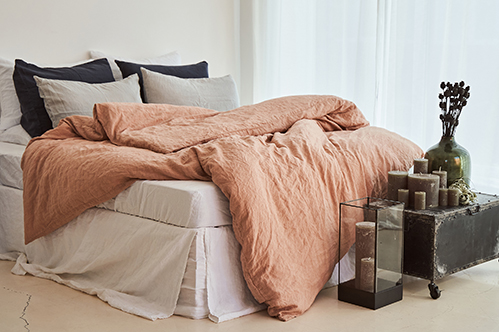
Why is linen good for bedding and why do we choose it?
We love linen‘s versatility and effortless look but what makes it stand out is its incredible health-supporting qualities. With linen, you don‘t have to change your sheets when the season changes. It adapts to your body temperature making you warm in winter and cool in the summer. Due to its porousness, linen has great heat conductivity, directing heat away from the body during summer. The incredible fabric also wicks away humidity and perspiration, so you will never have to sleep damp or worry about overheating. Because linen is highly absorbent, bacteria do not accumulate in the fabric making it an ideal bedding choice for sensitive people struggling with allergies.
